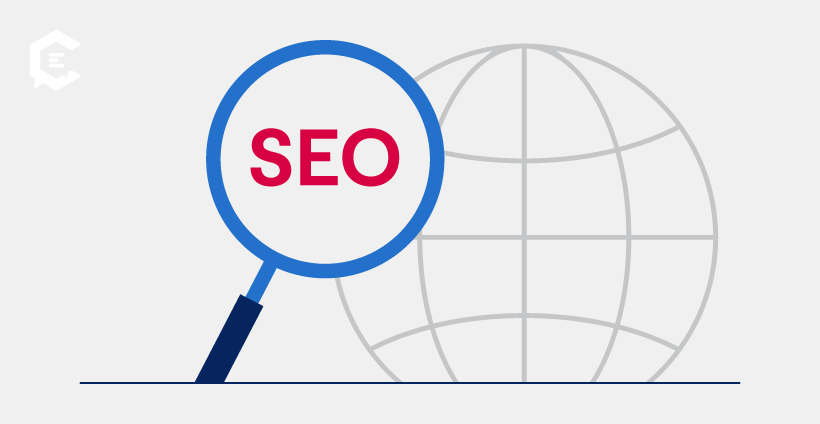Nothing gets the internet talking more than an apocalypse. So, it’s no surprise that every year, some pundit says SEO is over. And with the rise of large language models (LLMs) and AI search engines, the chatter about the future of SEO has never been louder.
But the truth is that businesses will always want to be found by their audiences. Yes, SEO is changing (and so must your strategy), but the fundamentals remain the same. Below, we’re covering the biggest SEO and AI trends to keep your content marketing efforts successful in 2025 and beyond.
5 SEO and AI Trends You Need to Know
The future of SEO is about meeting people where they search. From AI-driven answers to fragmented discovery across platforms, the focus is shifting from ranking in one place to being referenced everywhere.
1. AI and LLM Search Optimization
It’s time to face the facts: Google’s AI Overviews, AI Mode, and LLMs are stealing clicks by answering your users’ questions. Users no longer have to scroll search results to get answers or product suggestions. Now, they get all the info they need without ever having to click a thing (you’ll also hear this referred to as “zero-click search“).
So what can you do about it? Optimize your content for AI and LLM search (aka generative engine optimization or “GEO.” This is the future of SEO, and including AI search visibility in your SEO strategy is vital to increase the chances of these platforms recommending your brand to users. This can also help mitigate the loss of impressions and clicks you’re likely seeing and lead to more branded searches and direct traffic as LLMs cite your brand in response to user queries.
Key takeaways: As AI Overviews, LLMs, and AI-driven search assistants dominate, visibility is no longer about ranking first — it’s about becoming a trusted source that AI cites. Focus on creating content that answers user questions clearly, includes expert insights, contains original research and data, and provides real-world examples so your brand earns mentions in AI-generated answers.
2. High Quality, Relevant Content
No matter how much search evolves, one thing hasn’t changed — high-quality, relevant content remains the foundation of SEO. Google continues to prioritize content that demonstrates depth, credibility, and usefulness, regardless of whether it’s written by humans, AI, or a combination of both.
The rise of generative AI has made it easier than ever to produce content at scale, but it’s also created a flood of generic, low-value pages. To stand out, brands need to focus on original insights, firsthand experience, and authoritative sources that add real value for both readers and AI-driven search systems.
Key takeaways: As AI-generated content becomes ubiquitous, quality becomes your competitive edge. Prioritize E-E-A-T (experience, expertise, authoritativeness, and trustworthiness) signals so your content earns trust, ranks higher, and has a better chance of being cited by both search engines and LLM-powered assistants. Hiring niche writers, editors, and content reviewers with deep industry experience and expertise is one way to do this. You can also include original quotes from expert sources using a platform like HARO (Help a Reporter Out).
3. Search Everywhere Optimization
Search isn’t happening in one place anymore. Users discover products, services, and answers across multiple platforms: Google, YouTube, TikTok, Reddit, LinkedIn, Amazon, and even AI-powered assistants. This shift, often called “fragmented search,” is redefining how brands compete for visibility.
This means you need a search everywhere optimization strategy that combines managed visibility — the platforms you control, like your site, profiles, and listings — with influenced visibility, where other voices shape perception. Unboxing videos on TikTok, Reddit reviews, AI summaries, and third-party comparisons all impact whether someone chooses you over a competitor.
Long-tail, conversational keywords are more important than ever for optimizing your content, but visibility now also depends on format and context. That could mean repurposing content into short-form videos, optimizing for AI-ready Q&A, or ensuring your brand earns citations in LLM-generated answers.
Key takeaway: In the future of SEO, being everywhere matters more than ranking first. To win, you need to combine optimized owned assets with a strong presence in earned spaces, from Reddit threads and TikTok feeds to AI-powered search summaries, ensuring visibility and trust wherever your audience discovers, compares, and decides.
4. Brand Building as an SEO Strategy
As AI-powered search and LLM-generated answers become more prominent, brand recognition is becoming just as important as rankings. When users trust your brand, they’re more likely to search for you directly, click when they see your name, and engage with your content — all signals that traditional and AI search engines value.
These platforms also need reliable, well-known sources to cite. If you consistently publish authoritative, original content (notice a theme with these SEO trends yet?) and establish yourself as a thought leader, you’ll be more likely to be surfaced in AI-generated answers.
Key takeaways: Future SEO success depends on making your brand the answer. Invest in PR to position yourself as an expert source, share advice and answer questions on platforms like Quora and Reddit, and create original, data-driven research that others naturally reference. The more your brand is cited and trusted across the web, the more weight it carries with users and with AI systems deciding what to recommend.
5. Topical Authority
Brands that demonstrate deep topical authority will have an edge in this zero-click world. It’s no longer enough to rank for a few high-volume keywords — you need to own your niche by covering topics comprehensively and signaling that your content is the most trustworthy, useful resource available.
One way to strengthen topical authority is by creating topic clusters. Start with a comprehensive pillar page on a core subject, then build supporting content that addresses subtopics from every angle as well as various search intents (from informational to commercial), and then link it all together. Conducting surveys, publishing studies, and analyzing trends in your industry will also help your brand stand out as a source others cite.
Key takeaways: By combining in-depth topic coverage, proprietary insights, and early coverage of rising topics, you position your brand as the go-to resource and make it more likely to be cited, ranked, and recommended across both traditional and AI search.
The Future of SEO Is Alive and Kicking
As long as there are search engines, there will be SEO. While there will always be someone saying “SEO is dead,” it’s just not the case. The future of SEO isn’t as linear as it once was but it remains a crucial component to driving brand awareness, authority, leads, and conversions.
If keeping up feels like a full-time job, bring in specialists who do this every day. ClearVoice can pair you with industry expert writers, editors, strategists, and SEO pros to help you rank in traditional and AI search engines. Connect with a content specialist to learn more.






